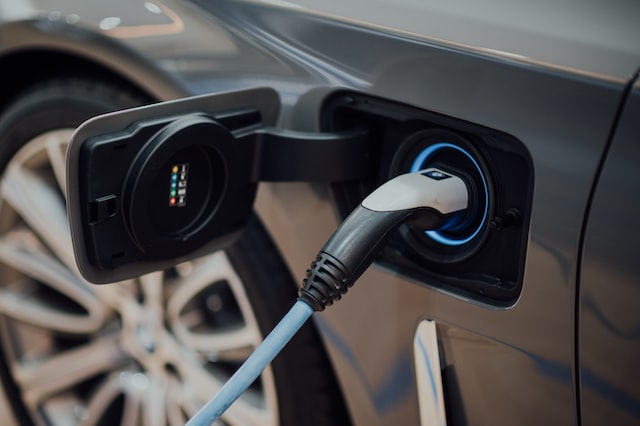
If you’re trying to live a greener lifestyle, you might be considering purchasing an electric vehicle, or EV. This can be a great option for many people. Let’s take a closer look at four things to know before buying an electric car.
- Know Your EV Charging Options — and How Much They Cost
There are three main options when it comes to charging your electric car.
Home charging, either with a system purchased from the car manufacturer or third-party EV charging stations, is often more ideal than public solutions since it tends to be cheaper. Certain EV models, such as the 2022 Nissan Leaf, offer a bi-directional charging feature — meaning they can even charge your home when you experience a power outage. An added bonus? Home EV charging stations might increase the value of your home.
Public charging stations offer pros and cons. Although they tend to be more expensive, charging does generally go faster. However, there are often long wait times at public charging stations, making them a less convenient option for most people. That being said, if you have a long work commute or take long road trips, using public stations will generally be unavoidable.
- EVs Can Cost More Upfront, But Have Lower Maintenance Costs
If you’re set on saving the planet, you might not care how much you need to spend to invest in an electric vehicle. We have good news and bad news.
Let’s start with the bad news first. The cost of investing in an electric vehicle tends to be higher than the cost of a gas-powered model. According to Kelley Blue Book, the average cost of an EV is just under $66,000, while the average price of a new gas-powered car is just over $48,000.
But the good news is that the long-term maintenance costs of electric vehicles tend to be lower than the cost of gas-powered vehicles. The cost of charging EVs is lower than the cost of purchasing fuel. In fact, Consumer Reports estimates that you’ll spend 60% less on charging your vehicle than you would on buying gas.
Electric cars also don’t require oil changes the same way gas-powered cars do. Since EVs feature fewer components than gas-powered vehicles do, there’s less that can go wrong with the vehicle in the short term. These vehicles use regenerative braking, which means the mechanical brakes will be used less frequently. Therefore, these vehicles experience less wear and tear on their brakes.
- Tax Credits Might Be an Option
When buying an EV, the high ticket price may scare you. But the federal government offers a $7,500 tax credit for those who make this eco-friendly purchase. Here’s the catch: It only applies to certain vehicles.
The government only offers the tax credit on certain makes and models. The Nissan Leaf, for example, starts at around $28,000. With the $7,500 tax credit, this price can begin around $20,500. If you’re thinking of purchasing an electric car, there’s no reason not to look into the federal tax credit.
- The Battery Pack Will Need to Be Replaced Eventually
One significant cost associated with electric vehicles is that the battery will need to be replaced over time. According to the U.S. Department of Energy, the battery pack will typically need to be replaced after 8 to 15 years, depending on the climate where you live. Extremes in temperatures can lead to shorter battery life. It is possible for them to last longer than this estimate, however. A new battery pack costs thousands to tens of thousands of dollars, but this cost is predicted to go down over time.
These are just four things to know before buying an electric car. From charging to long-term maintenance costs, it’s important to be aware of all the ins and outs of purchasing an EV before making this long-term, eco-friendly decision.



